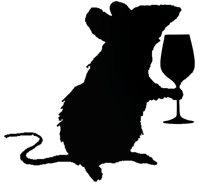Zarathustra
Let Go Of Your Team
- Joined
- Oct 31, 2009
- Messages
- 8,110
anyone good at synastry?
Nah, but I'm pretty decent at arithmetic, and your homeboy's violating the divide by 2, plus 7 rule...
Not a favorable sign...
anyone good at synastry?
Nah, but I'm pretty decent at arithmetic, and your homeboy's violating the divide by 2, plus 7 rule...
Not a favorable sign...
 i know, but only by half a year so i made an exception. plus his birthday's the day after mine! how could i pass that up?
i know, but only by half a year so i made an exception. plus his birthday's the day after mine! how could i pass that up?i know, but only by half a year so i made an exception. plus his birthday's the day after mine! how could i pass that up?
Chana, are you in that relationship or just contemplating it?

a long time ago god asked his favorite animals to join him at a special banquet in which he would give each animal their own year. the rat, being as tricky as he was, fooled the cat into thinking the banquet was the day after it really was.
the next night all the 12 animals lined up to walk to the great banquet. the rat told the ox that he was to tired to walk all the way and the ox kindly let the rat ride on his back. then when they were about to reach the palace, the rat hopped off the oxes’ back and was granted the first year of the zodiac. the banquet lasted for several hours and each of the animals love it, however the cat was sleeping and dreaming of a banquet that would never happen.

Astrology is interesting indeed.
But not because it is an explanantion of us, humans. BUt because it is one of those hundreds attempts to identify the human personality.
One believes that astrology is THE explanation of our characters - others believe other theories.
But I think that biasing the human character on the stance of the stars, is wrong.
Humans and stars have no personal contact or whatsoever (this sounds funny - just imagine, having personal contact with a star) nor can stars influence our thinking (cosmic rays? Naaaw - that won't do).
So astrology is fun and intersesting but not a theory of our characters.
That's just plain out of the picture.
sorry Zarathustra; but I really don't believe in astrology.
Congratulations.
You have declared, "I don't believe in astrology, therefore I don't believe in astrology."
Lol, sorry.
I know that my declaration is somewhat running in circles. xD
Welcome to my train of thoughts


I'd rather not look through all 14 pages of this thread, but I'm curious whether any scientific studies have suggested how the arrangement of celestial bodies at a person's birth would have an impact on their personality. Has anyone read up on this? I did a quick Google search, which was interesting -- but I don't know what to make of it
And imagine that you are being approached by two different epistemologies—two suitors, as it were, who seek to know you. To whom would you open your deepest secrets? To which approach would you be most likely to reveal your authentic nature? Would you open most deeply to the suitor—the epistemology, the way of knowing—who approached you as though you were essentially lacking in intelligence or purpose, as though you had no interior dimension to speak of, no spiritual capacity or value; who thus saw you as fundamentally inferior to himself (let us give the two suitors, not entirely arbitrarily, the traditional masculine gender); who related to you as though your existence were valuable primarily to the extent that he could develop and exploit your resources to satisfy his various needs; and whose motivation for knowing you was ultimately driven by a desire for increased intellectual mastery, predictive certainty, and efficient control over you for his own self-enhancement? Or would you, the cosmos, open yourself most deeply to that suitor who viewed you as being at least as intelligent and noble, as worthy a being, as permeated with mind and soul, as imbued with moral aspiration and purpose, as endowed with spiritual depths and mystery, as he? This suitor seeks to know you not that he might better exploit you but rather to unite with you and thereby bring forth something new, a creative synthesis emerging from both of your depths. He desires to liberate that which has been hidden by the separation between knower and known. His ultimate goal of knowledge is not increased mastery, prediction, and control but rather a more richly responsive and empowered participation in a co-creative unfolding of new realities. He seeks an intellectual fulfillment that is intimately linked with imaginative vision, moral transformation, empathic understanding,
aesthetic delight. His act of knowledge is essentially an act of love and intelligence combined, of wonder as well as discernment, of opening to a process of mutual
discovery. To whom would you be more likely to reveal your deepest truths?
It doesn't claim to work based on mechanistic causal principles.
